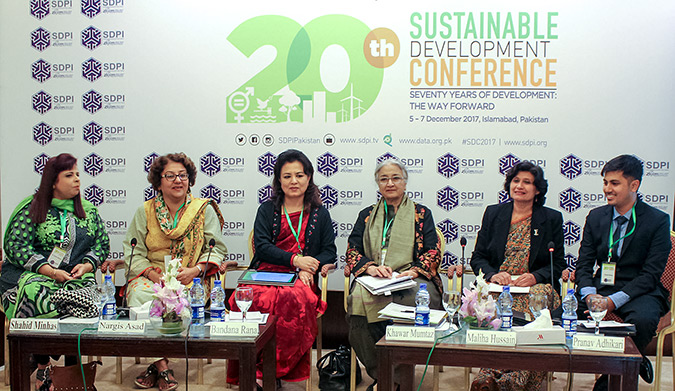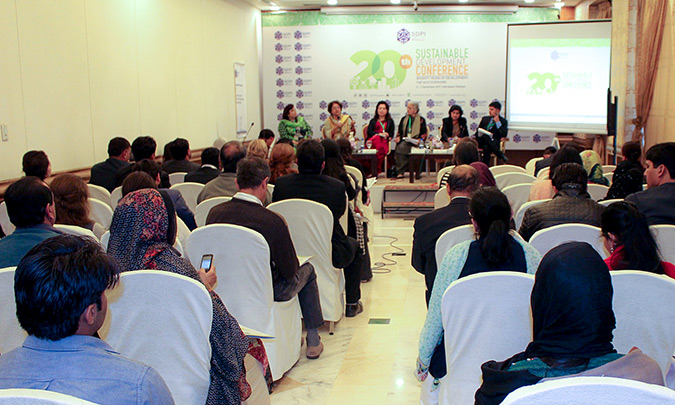Panel co-organized by UN Women discusses the multiple barriers to women getting justice
Date:

Islamabad, Pakistan — Experts have discussed the causes of violence against women in Pakistan and possible solutions, in an in-depth panel discussion organized by UN Women in collaboration with Sustainable Development Policy Institute.

The 05 December discussion on "Women's Access to Justice: Ending Violence against Women" was part of the "20th Sustainable Development Conference", a high-level meeting which the non-profit institute holds annually. Academics, members of civil society organization, and human rights experts attended the discussion.
The panelists said that women's access to justice and services is hampered by the limited capacity of police and prosecutors to investigate and prosecute crimes against women; biased attitudes, beliefs and practices; lack of access to transport; inadequate educational and financial means; and a general lack of knowledge about options, services and remedies. In addition, they said that provisions of penal codes at the federal and provincial levels on rape, adultery, sexual violence committed within marriage (not a crime in Pakistan), and "honour killings" reflect an unambiguous discrimination against women. Honour killings entail the murder of a woman or girl by her family or intimate partner for behaviour considered to be immoral that tarnishes the families' honour.

Nargis Asad of Aga Khan University in Karachi discussed research on intimate partner violence in Pakistan, Nepal and Bangladesh, and said that psychological violence is connected to every type of violence against women. She said that lack of education, intelligence, early marriage, unemployment, poverty and use of drugs are major causes of violence against women.
Another panelist, Pranav Adhikari from Nepal, said the media and social media play important roles in spreading awareness, especially among the youth, about the causes of and solutions to the problem of intimate partner violence. Adhikari is a researcher who has done a study on intimate partner violence in Nepal.
Maliha Hussain, a Pakistani academic and trainer on sexual harassment, stressed the importance of making gender equality concepts a regular part of the school curriculum. "We need to teach our girls and boys about their rights, about their role in driving a change beyond the stereotypical gender roles," she said. She also stressed the Importance of strengthening institutions to eradicate violence against women and the need to change attitudes in tackling the violence.
Khawar Mumtaz, Chairperson of the National Commission on the Status of Women, emphasized the need for all institutions including the Gender Crime Cell of the National Police Bureau to gather more gender-disaggregated data on reported cases of violence.
For more information, contact:
Anam Abbas
Communications Officer, UN Women Pakistan
Email: [ Click to reveal ]